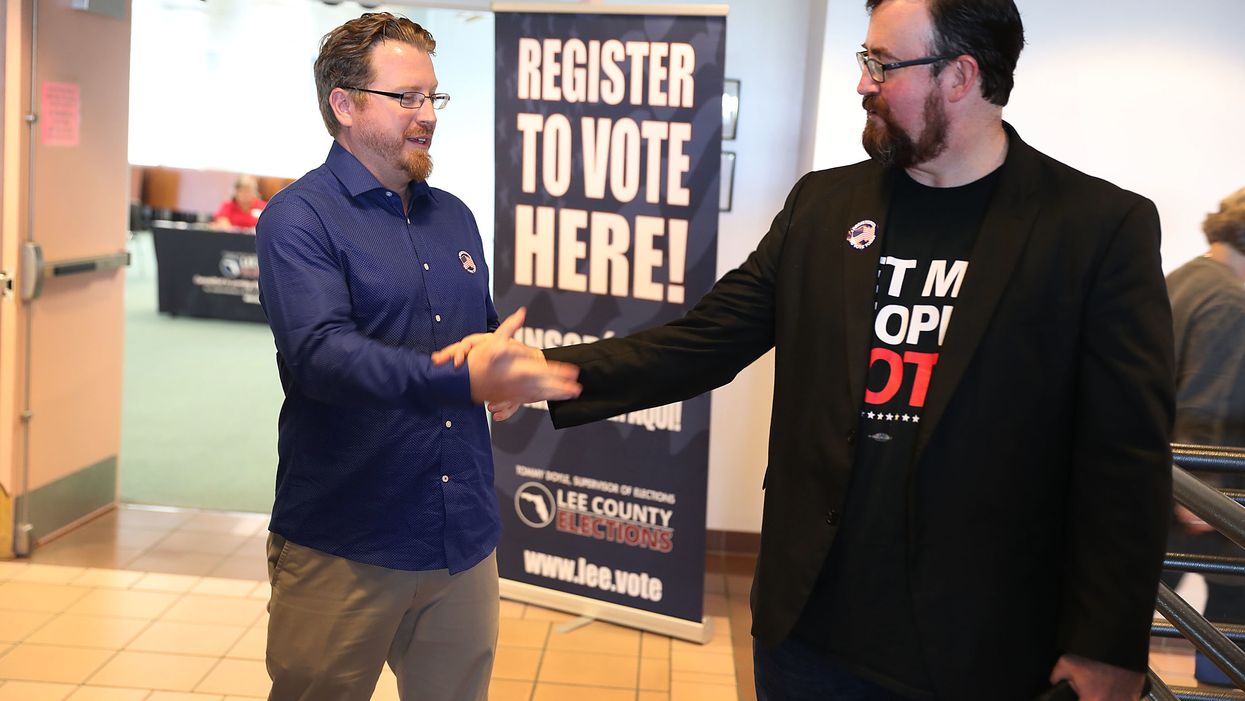What had been hailed as a major victory for those who favor restoring voting rights for convicted felons has now become a legal battle over exactly how that process should work.
On Friday, Florida Gov. Ron DeSantis signed into law a bill that requires those seeking to recover their voting rights to first pay all fines and fees that they owe. In swift order, voting and civil rights groups then filed legal action seeking to block the requirement.
Last fall, voters in Florida passed by a wide margin a state constitutional amendment that restored voting rights to Floridians "after they complete all terms of their sentence including parole or probation."
In signing the bill requiring payment before voting rights restoration, DeSantis said the amendment restored rights "without regard to the wishes of the victims."
"I think this was a mistake and would not want to compound that mistake by bestowing blanket benefits on violent offenders," DeSantis wrote. The amendment excluded people convicted of murder or sexual offenses but covers, DeSantis pointed out, those convicted of attempted murder, armed robbery and kidnapping.
Advocates estimate more than 1 million Floridians could have their voting rights restored because of the amendment.
Those filing suit in federal court in Florida to block the law – including the Campaign Legal Center, Brennan Center for Justice, ALCU of Florida and NAACP Legal Defense Fund – claim it discriminates on the basis of wealth and constitutes a modern-day poll tax.
"Over a million Floridians were supposed to reclaim their place in the democratic process, but some politicians clearly feel threatened by greater voter participation," said Julie Ebenstein, senior staff attorney with the ACLU's Voting Rights Project.
"They cannot legally affix a price tag on someone's right to vote," Ebenstein said in a statement released when the lawsuit was announced.
The legislation signed by the governor does allow felons to ask a judge to waive the fees or fines or convert them to community service hours. In order to waive restitution, the victim must sign off or could also allow it to be converted to community service.
Several reports say court records show ex-felons who have completed their prison sentences in Florida owe hundreds of millions of dollars in unpaid fines and penalties.
Some states, like Washington, allow ex-felons to vote while they pay off their fines.




















Trump & Hegseth gave Mark Kelly a huge 2028 gift